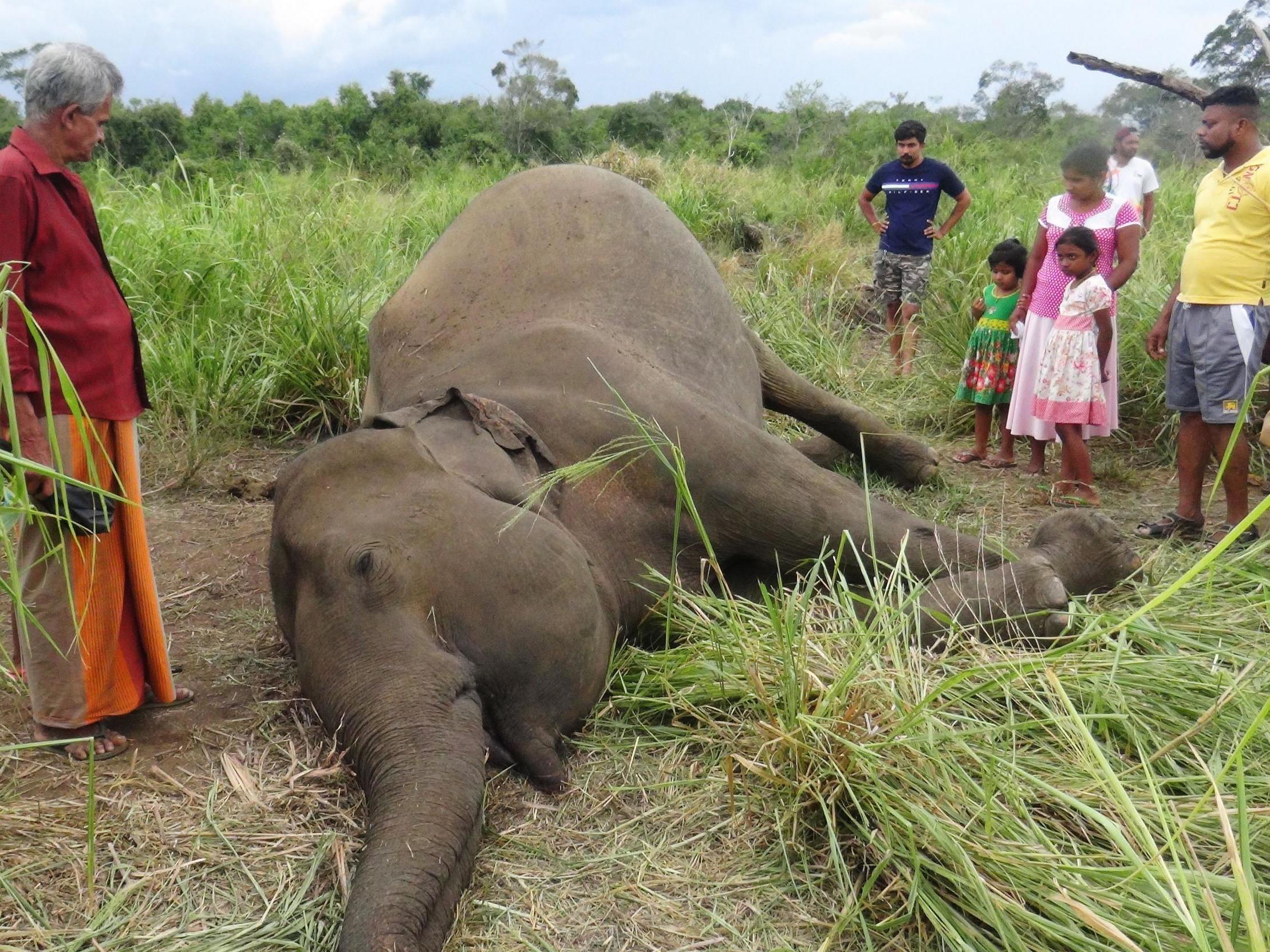Poison and explosives used to kill elephants as record numbers die in Sri Lanka
Nearly 400 targeted last year in revenge for ‘crop-raiding’ after habitats taken over

A record number of elephants – 361 – died in Sri Lanka last year, mostly killed by humans, conservationists have said.
People used electric fences, poison and explosives hidden in food to kill the endangered animals.
The death toll was the highest reported since Sri Lanka became independent in 1948, experts said.
The expansion of rural farming is making natural habitats shrink, so elephant-human conflict is a rising problem, according to the Sri Lankan Centre for Conservation and Research.
The competition for food and water often leads villagers and farmers to illegally kill the animals.
Campaigners call on Indian PM to end torture of captive elephants
Show all 11Sajeewa Chamikara, an environmentalist with the Movement for Land and Agricultural Reform, told the BBC 85 per cent of elephant deaths last year may are thought to have been caused by human activity.
He called on the government to do more to improve the quality of protected areas, such as reducing invasive plants that grow over grasslands that feed the elephants.
“Our development plan is not eco-friendly. We need a sustainable development plan,” he added.
According to the world authority on nature, the IUCN red list of threatened species, Asian elephant numbers are falling and the species is classed as endangered and “severely fragmented”. The IUCN puts numbers at 2,500 at between 4,000.
Elephants are known to develop strong, intimate bonds and have been shown to form lifelong friendships. They mourn the death of loved ones, and females help each look after each other’s calves.
In September, seven elephants found dead in a reserve were suspected of having been poisoned by local residents for destroying crops.
Anyone who harms, kills or injures an elephant is liable for imprisonment or a fine, but officials say enforcing the law is difficult.
They have promised to work to reduce crop-raiding by putting fences between elephant habitats and rural communities.
Some wild elephants are hit and killed by trains during migration. And dozens of elephants are kept in captivity in Sri Lanka to raise income from tourists or forced to march at local festivals.
To make them submit to being ridden, they are put through a brutal training process called “the crush” which involves their being hit with sharp bullhooks to cause pain, and being deprived of food and water.
Two months ago, an elephant is believed to have died from exhaustion after being forced to carry tourists in Sri Lanka in searing heat.
The animal was said to have carried three groups of holidaymakers on the day he died and been hit with a bullhook.
In 2018, 319 elephants and almost 100 people were killed in elephant-human conflicts, Mongabay reported, with 64 killed by explosive devices hidden in food, and 53 shot dead. The past four years have seen at least 21 cases of elephant poisoning deaths, for which no perpetrators have been identified.
The Sri Lankan Centre for Conservation and Research said: “With expanding human populations, natural habitats that are not designated as ‘protected’ are being converted to human habitats at an ever-increasing rate. Where elephants once ranged have sprung up crop fields, where they once bathed and peacefully drank is now an agricultural reservoir.”
Subscribe to Independent Premium to bookmark this article
Want to bookmark your favourite articles and stories to read or reference later? Start your Independent Premium subscription today.

Join our commenting forum
Join thought-provoking conversations, follow other Independent readers and see their replies